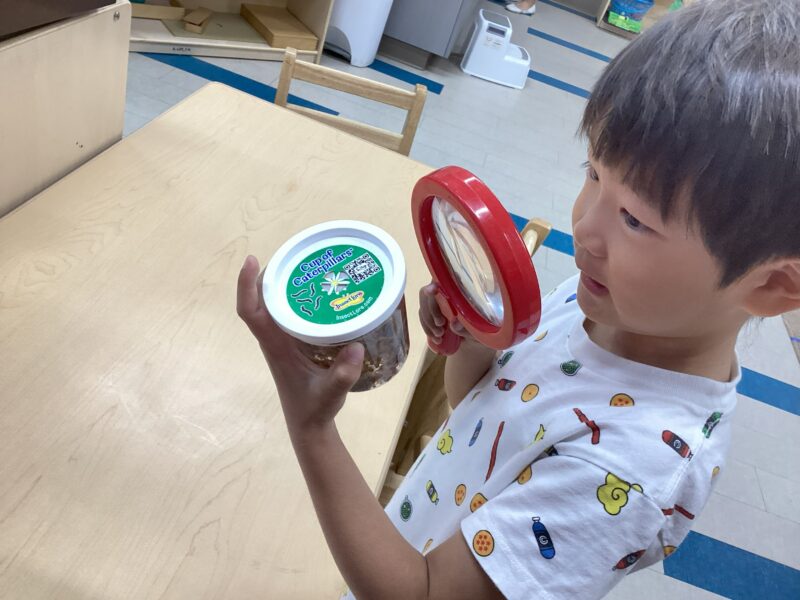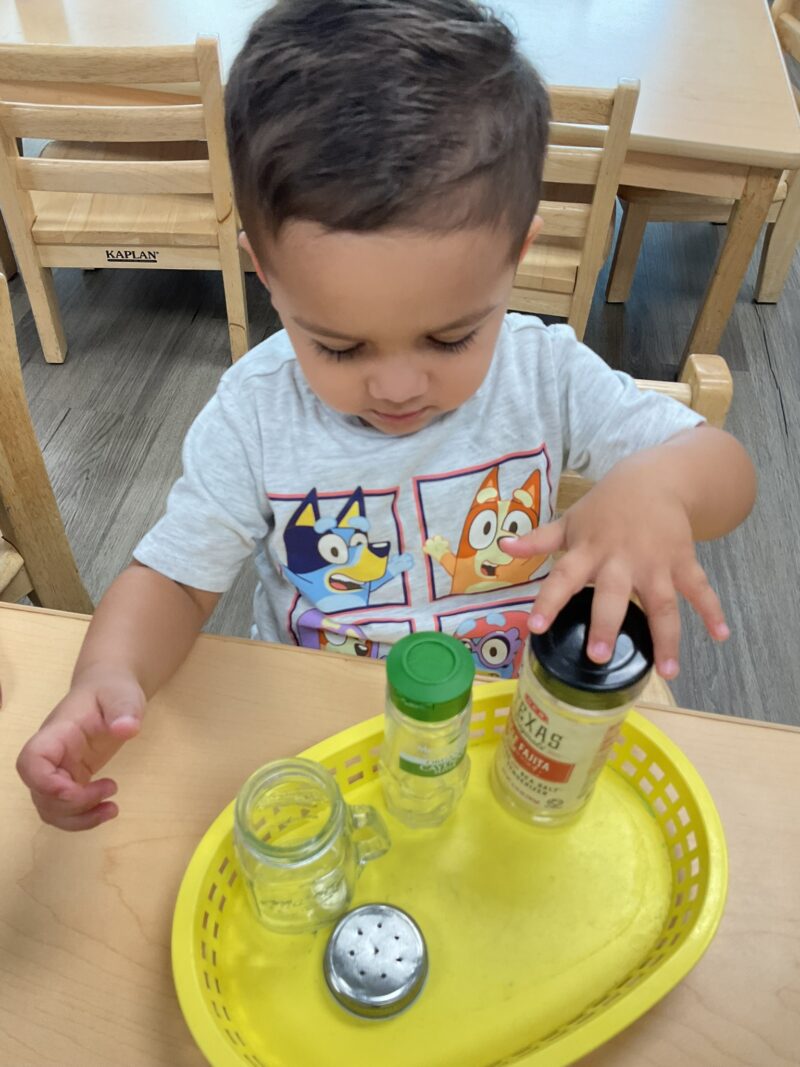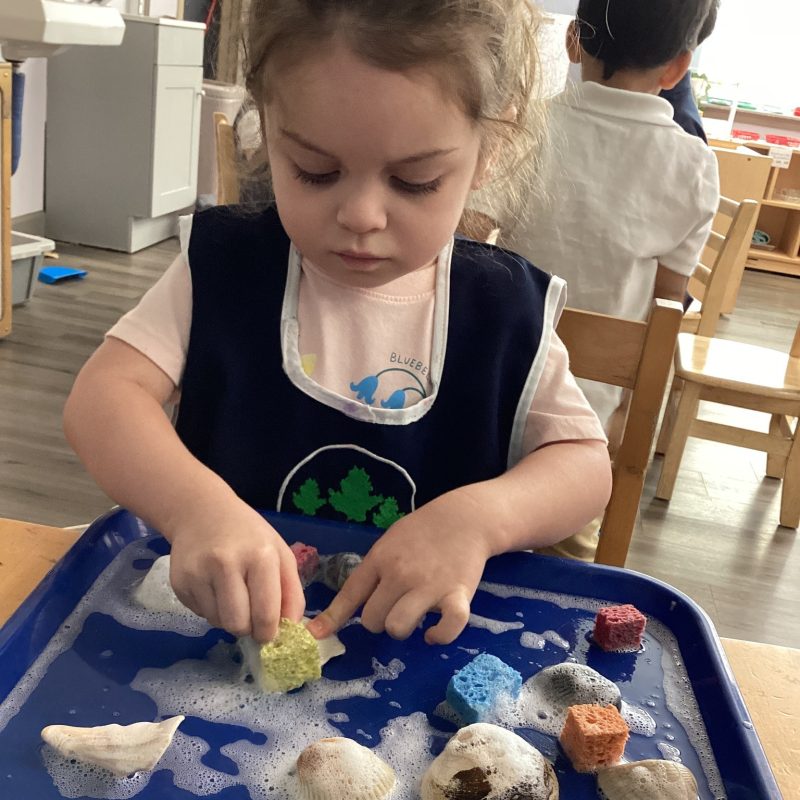
‘The greatness of the human personality begins at the hour of birth. From this almost mystic affirmation, there comes what may seem a strange conclusion: that education must start from birth.’ – Maria Montessori
Montessori revered the birth of a child with great love and hope for the future. She observed an unconscious force that seemed to govern the developmental process of an infant and encouraged parents to stand back and let this natural process take place. She guided parents to protect the infant’s natural and miraculous unfolding and referred to this time as a spiritual embryo, formative and sacred.
It is not our role to fill the child with our perceived ideas about who they should be. Instead, create a loving environment during this formative time that allows your child’s ‘horme’, the unconscious life force, to play out. All we can do is create that safe space for the natural blossoming of the infant, and like a lotus flower, the soul shall reveal itself.
‘The feeling we should have towards the newborn baby is not the compassion that we have for the sick or weak, but reverence before the mystery of creation, the secret of an infinite taking bounded form.’ Maria Montessori
Infant Developmental Aspects

Montessori noted four key developmental aspects essential to better understanding your child as he transitions through infancy. These are;
- Human tendencies
- Absorbent Mind
- Sensitive periods
- Prepared environment
Human tendencies:
Montessori observed that an infant has an innate set of human tendencies, and if we are aware of these, we can better support and accept the way these play out in our parenting journey. Montessori noted nine human tendencies; exploration, orientation, order, imagination, manipulation of objects, repetition, precision, and control of error, leading to perfection and communication.

Herewith a deeper understanding below;
- Exploration – infants need to explore their world with all of their senses. Provide your child with a safe sensory-rich environment where he can freely touch, put things in his mouth, experiment with sounds etc.
- Orientation – infants need to orient themselves within their environment. Allow your child to adventure off bravely and find his way back home to you again.
- Order – infants feel secure in an ordered environment and routine. This sense of security is reassuring to the child. Create a structured daily routine for play, eating, and sleep. A good bedtime routine is also essential in helping your child to settle for the night.
- Imagination – children have vivid imaginations. Please provide your infant ample creative outlet by providing him with crayons, paint, playdough, etc., and let his creativity flow.
- Manipulation of objects – Montessori said that ‘the human hand allows the mind to reveal itself.’ A child needs to explore his environment with his hands. Catch yourself when you say ‘don’t touch’, and redirect your child to something more suitable.
- Repetition – children need to repeat tasks over and over again to gain mastery. Allow your child the time he needs to do something repeatedly; he will naturally move on to something else when he has mastered this skill.
- Precision – children naturally seek to perfect. Encourage this; it is such an excellent attribute to have. Montessori observed that ‘sometimes very small children in a proper environment develop a skill and exactness in their work that can only surprise us.’
- Control of error – children have an innate understanding of when something is just right, and they will work tirelessly until they reach this level of exactness. Allow them to judge and execute their control of error.
- Communication – Infants must vocalize and express their needs, thoughts, and feelings. Give your child the opportunity to share as much as possible; inevitably, this will help your child feel heard and loved.
Absorbent Mind
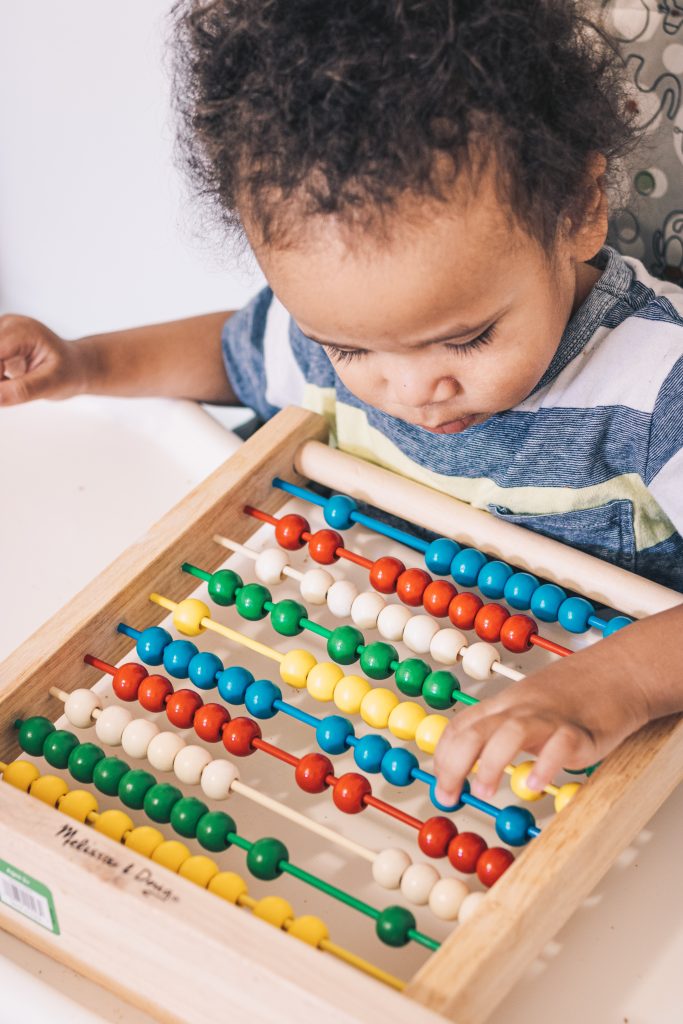
From birth, a child can absorb information from the world around him without conscious effort. His mind is like a sponge; he naturally and spontaneously learns through his senses about himself and others from his environment. A child will quickly absorb the language surrounding him and his family culture and begin building his identity on what he absorbs.
Knowing this can significantly reduce the pressure we feel to ‘teach’ our child at every given moment; it is far better to expose your child to the colorful diversity of life!
‘Our works as adults do not consist in teaching, but in helping the infant mind in its works of development…He learns everything without knowing he is learning it, and in doing so, he passes little by little from the unconscious to the conscious, always treading in the paths of joy and love.‘ Maria Montessori
Sensitive Periods:
Montessori identified six main sensitive periods children pass through from birth to six. These window periods are when a child is most sensitive and innately compelled to learn specific skills such as language, movement, order, refinement of the senses, social behaviour and attention to detail (small objects).
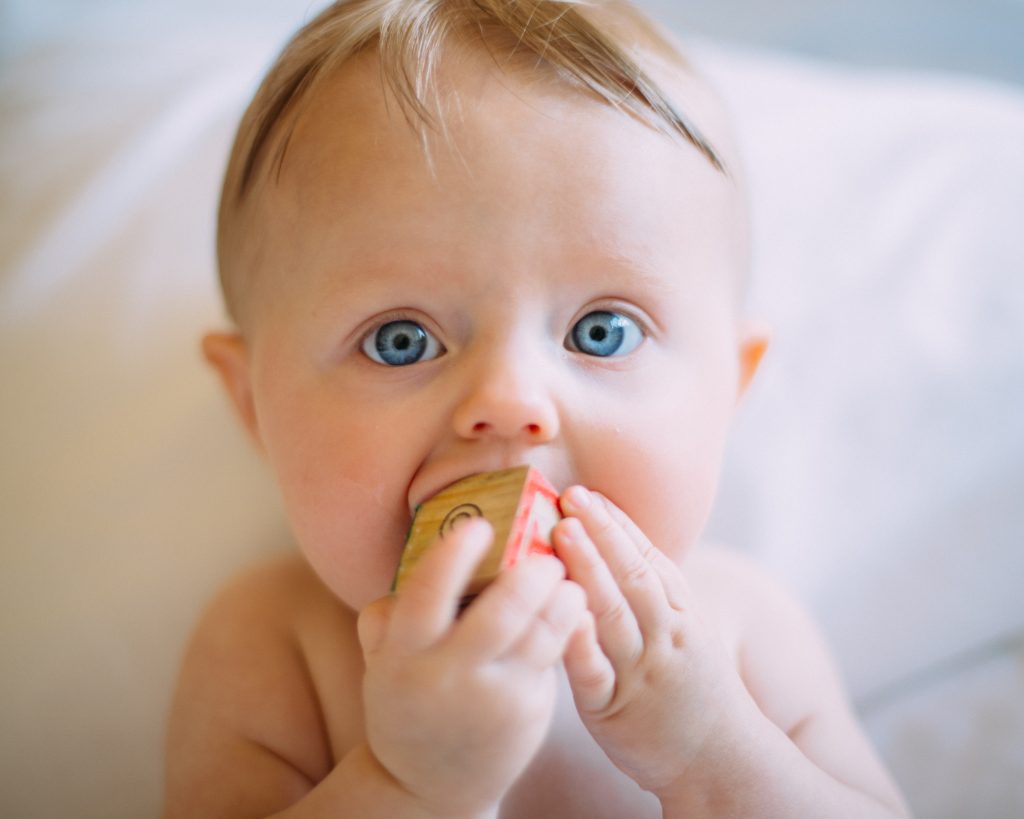
Four of these sensitive periods reveal themselves most acutely during infancy, from birth to two, namely language, movement, refinement of the senses, and order.
- Language – children intently attune their attention to developing language from the moment they are born and even in utero. You may notice your child mimicking your mouth movements and babbling continuously to copy the words he hears. During this time, he will also easily acquire new vocabulary, astoundingly. Make eye contact when speaking with your child, speak clearly, slowly, and correctly and give your child the words and language for as much as possible. Expose your child to multiple languages.
- Movement – from birth to about five, a child shows a high sensitivity to fine and gross motor development. Your child must move and explore his body as much as possible. Provide your child with unrestricted and comfortable clothing, a safe space, and freedom to move as much as possible. Encourage fine motor activities such as cutting, pegging, drawing, and flower arranging.
- Refinement of senses – children predominantly learn through their senses from birth to four. A child will learn best through sensory-rich exploration and experiences. Please slow down, be patient, and allow your child time to take in the world around him through his senses. Cloud watch, smell the flowers, feel the grass, listen to the birds and taste a juicy orange together. Montessori observed that ‘the senses, being explorers of the world, open the way to knowledge’
- Order – is critical to a child’s sense of safety in the world. Routine and an ordered environment help a child to feel secure, in control, and independent. Create a consistent routine whether you are at home or not. Group clothes, items, and toys into categories and give every item a place in your home so your child knows exactly where to find what he needs.
Prepared environment:
Finally, prepare a safe environment for your infant to flourish and ensure it adheres to the following guidelines as best you can…

- It is safe and provides freedom of movement.
- It is simple, ordered, and structured.
- It is calm and serenely decorated.
- It incorporates real-life, nature, and beautiful images.
- It is child-sized and easily accessible.
- It provides a low bed or floor mattress, low-hanging pictures, a natural fiber floor rug, a low-mounted wall mirror, and baskets with a few select wooden or sensory toys.
With a greater understanding of these critical developmental aspects, we can better support our child through this miraculous and foundational period of his life.
‘The studies which have been made of early infancy leave no room for doubt: the first two years are important forever because in that period, one passes from being nothing into being something.’ – Maria Montessori
Subscribe to Newsletter
Programs offered at ExcellED Montessori Plus include:
✔️Infants (10 Weeks – 18 Months)
✔️Toddlers (18 – 36 Months)
✔️Primary (3-6 Years)
✔️Kindergarten
✔️Mother’s Day Out
✔️Spanish Immersion / Dual Language
✔️After School Programs and Summer Camp (6 – 12 Years)
Music, Spanish, and Yoga are other programs included as part of the tuition.
Learn more about Inquiry-based Learning


